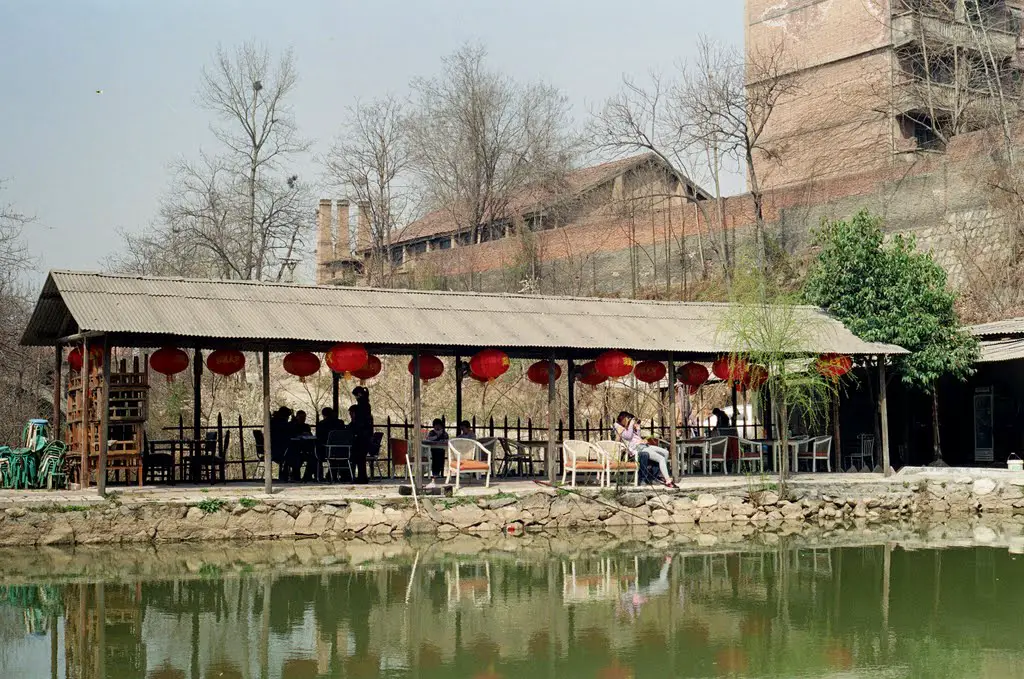Han dynasty
Suomi فارسی Tiếng Việt Galego Magyar Nederlands Slovenščina Српски / Srpski Norsk (Bokmål) Bahasa Melayu Português Română Français Svenska Euskara Català Lietuvių 日本語 Nynorsk Español 中文 Dansk ไทย Čeština Deutsch Italiano Hrvatski Українська Ελληνικά हिन्दी Русский 한국어 Eesti Polski العربية Türkçe עברית
The Han dynasty (UK: /ˈhæn/, US: /ˈhɑːn/; traditional Chinese: 漢朝; simplified Chinese: 汉朝; pinyin: Hàncháo) was an imperial dynasty of China (202 BC – 9 AD, 25–220 AD), established by Liu Bang and ruled by the House of Liu. The dynasty was preceded by the short-lived Qin dynasty (221–207 BC) and a warring interregnum known as the Chu–Han contention (206–202 BC), and it was succeeded by the Three Kingdoms period (220–280 AD). The dynasty was briefly interrupted by the Xin dynasty (9–23 AD) established by usurping regent Wang Mang, and is thus separated into two periods—the Western Han (202 BC – 9 AD) and the Eastern Han (25–220 AD). Spanning over four centuries, the Han dynasty is considered a golden age in Chinese history, and it has influenced the identity of the Chinese civilization ever since. Modern China's majority ethnic group refer to themselves as the "Han people" or "Han Chinese". The spoken Sinitic language and written Chinese are referred to respectively as the "Han language" and "Han characters".






